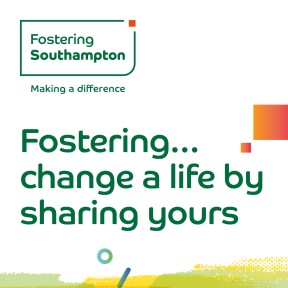Children's dental health
"She always had juice in a bottle, then she moved onto one of those ‘anyway-up cups’ because they are a lot less messy. I suppose she did have quite a lot of sugary drinks. I didn’t realise it would damage her teeth so badly. Now she is waiting to have six teeth out and she is only four."
Tooth decay is almost totally preventable. Get it right from the start. Know what causes teeth to go bad. Talk to your health visitor and register your baby with a dentist as soon as you can - they can both give good advice on how to prevent tooth decay.
How to help children brush their teeth
A regular teeth-cleaning routine is essential for good dental health. Children need to be helped or supervised brushing their teeth until they are at least 7 years old. To find out more about toothbrushing tips for children, how to help children brush their teeth and taking your child to the dentist, visit the NHS Children’s Teeth webpage. You can also watch the video below on how to brush your child’s teeth from our Senior Family Hub Worker, Linda, who filmed it with the help of Clarabela the crocodile!
Warning signs
Be observant, keep an eye on your children's teeth. Sugary drinks can cause rapid damage, especially to baby teeth and young children can’t always explain when they have toothache.
Prevention
Most drinks for babies and children contain sugar, so look at labels - sucrose, glucose, fructose, dextrose, glucose syrup, maltodextrin and concentrated fruit sugar can all cause tooth decay.
Get in the habit - brush your baby’s teeth as soon as they come through, night and morning. It’s never too early to start taking your child to the dentist. Ask family and friends to recommend one who is good with children.
- Every child has the right to a healthy mouth and a nice smile
- Frequent intakes of sugary snacks and drinks will rot teeth
- Be firm. Try to give healthier sugar-free snacks and drinks in between meals
- Let children enjoy their sugary things at mealtimes and/or just afterwards
- Sugary snacks and drinks at bedtime are especially damaging to teeth
- Use a family fluoride toothpaste right from the start – 1350-1450 parts per million (ppm)
- Encourage and support your pre-schools and schools to promote healthy, sugar-free snacking
- Start off the right way, its not always easy but it’s worth it in the long term
Promoting dental health
As we get older, many of us realise how important our teeth are, not only for eating and speaking, but also for confidence and self-esteem too.
If children are brought up to care for their teeth, it should stand them in good stead for the rest of their lives.
Here are our top tips for promoting dental health with your children:
- The best drink in the first year is breast or formula milk. Soya milk can damage teeth so only use it if your doctor or health visitor advises it
- Water is a good thirst quencher between meals, under the age of six months offer cooled boiled water
- Encourage your baby to drink from a cup as soon as they can hold one, usually around six months. After a lidded cup your baby can progress to an open cup. Valve cups are not recommended
- Ask your doctor/chemist if you can have sugar-free medicines
- As they grow, get into the sugar free habit. Put more fruit, vegetables and bread based snacks on your shopping list
- If you are confronted with sweet treats at the check-out, offer easy alternatives like an apple, tangerine or breadstick
- Don’t ban sweets, but keep them for straight after a meal or for a special time
- Make sure that children brush their teeth twice a day with a family fluoride toothpaste, but only use a pea sized blob. They will need your help until they are seven. Don’t brush teeth straight after acidy drinks (fruit juice) as damage may occur
- Register your child with a dentist as soon as you can and take them to see him/her. Let them get used to going. Don’t wait until they have problems or are in pain


